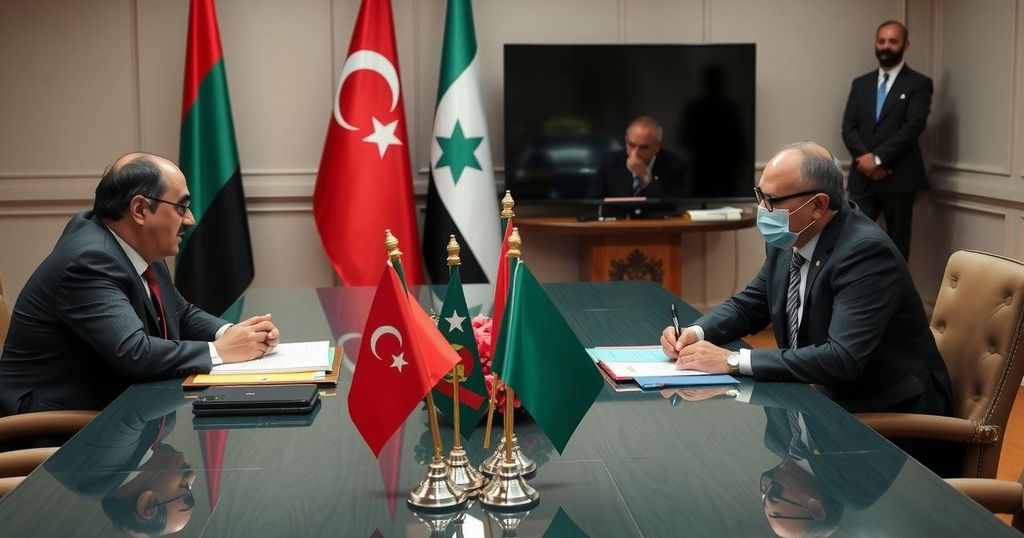Libya and Syria Strengthen Ties Through Diplomatic Talks on Migration and Energy

A Libyan government official met with Syria’s new leader to discuss energy, migration, and enhancing diplomatic relations. The talks indicated support for Syria’s transitional authority and the importance of security cooperation. Libyan-Syrian ties have been notably absent since 2012, but this meeting suggests potential renewed engagement as both nations navigate their complex political landscapes.
A high-ranking official from Libya’s UN-recognized government met with the newly appointed Syrian leader Ahmed al-Sharaa to discuss critical aspects of bilateral relations, including energy, security, and migration. Minister of State for Communication and Political Affairs, Walid Ellafi, expressed full support for Syria’s transitional phase and emphasized the necessity for enhanced cooperation, particularly in military and security matters, while addressing illegal immigration and energy collaboration. The meeting also underscored the importance of diplomatic representation, marking a potential new chapter in communications between the two nations.
Since the rise of civil conflict in Syria in 2011, numerous Syrians have sought refuge and employment in Libya, often leading to perilous journeys across the Mediterranean towards Europe. Libya’s political landscape is currently fragmented, with governance split between the internationally recognized administration in Tripoli and a rival authority in the east led by Khalifa Haftar. After the fall of Moamer Kadhafi in 2012, Libya had no diplomatic presence in Damascus, until a recent re-establishment of ties, evidenced by the meeting of Libyan and Syrian officials.
The meeting between the Libyan official and Syria’s leader signifies a significant step towards revitalizing diplomatic relationships amidst ongoing regional instability. With a focus on energy, security, and migration, both nations appear committed to enhancing their partnership during this transitional phase. The discussions highlight the broader geopolitical shifts as countries in the region begin to engage with new authorities in Syria following its recent political upheaval.
Original Source: www.barrons.com








